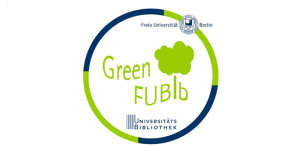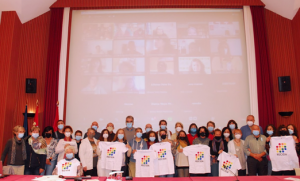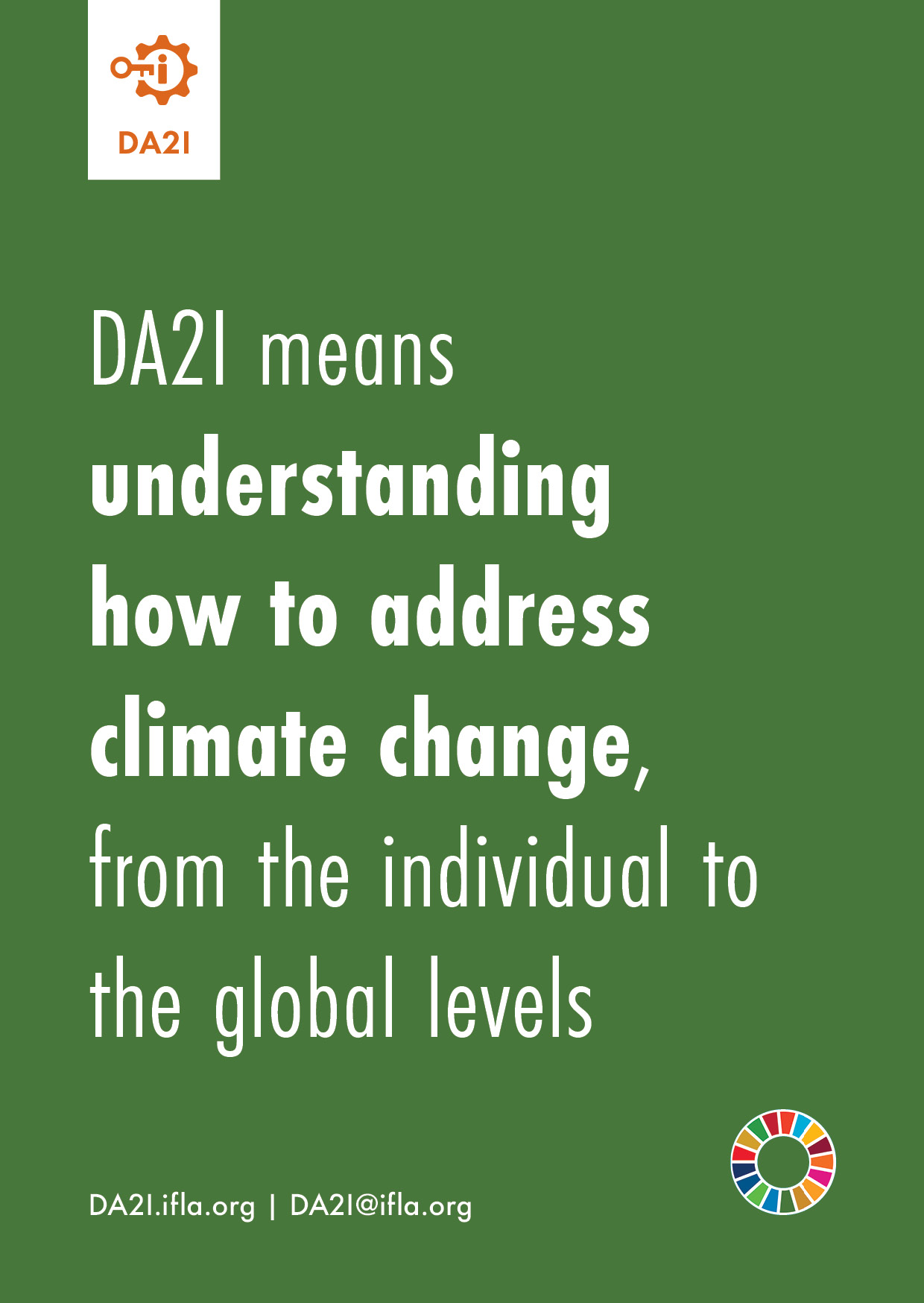On World Environment Day (June 5), the Only One Earth campaign calls “collective, transformative action on a global scale to celebrate, protect and restore our planet”. This campaign, led by the United Nations Environment Programme (UNEP) and hosted in 2022 by Sweden, is the largest international day focussed on the environment.
This year’s call to action echoes the outcomes of the 26th UN Climate Change Conference (COP26), which culminated in the urgent message that now more than ever, leaders must take increasingly ambitious steps to mitigate the climate emergency.
However, this is not the role of government and policymakers alone. The Only One Earth campaign stresses collective action. A full spectrum of stakeholders – from governments, to cities, financial institutions, businesses, NGOs, academia, civil society, and individuals can – and must – take part.
This campaign highlights that climate action is a common goal, and all people have a vital role to play if we are to make a meaningful difference. Libraries are a part of this solution.
Libraries Empowering Climate Action
Libraries are learning institutions and trusted community spaces that can help educate, empower, and mobilise their community to take action for the environment.
Libraries connect people to knowledge, ideas, skills, and opportunities. Their collections, and expert staff who help make material discoverable, connect us to the past and to one another, and inspire innovation.
Interested in learning more?
Review IFLA’s brief on Libraries and the Glasgow Work Programme on Action for Climate Empowerment for more on how libraries can empower climate action through education, access to information, and public participation.
Watch the recent webinar from IFLA’s Environment, Sustainability, and Libraries Section (ENSULIB), Climate equity: A manifesto for libraries, which explores how libraries can be proactive in bringing climate equity to the fore in their communities.
Share your Impact on World Environment Day 2022
For World Environment Day 2022, the Only One Earth campaign calls on all stakeholders to calculate their Earth Action Numbers. These are numeric goals that help celebrate, protect, and restore our planet.
The campaign is creating an interactive map of Earth Action Numbers from around the world. This global perspective shows how many small actions – 2,754 and counting – can add up to a major movement.
Explore Earth Action Numbers from around the world here.
It only takes a few minutes to build your library’s Earth Action Number, add it to the map, and share your impact with the world.
Start here: Build Your Earth Action Number
Step 1: Plan Your Response
Your library’s Earth Action Number is a specific, quantifiable example of your planned impact.
To build an Earth Action Number for your library, you will be first asked to identify the type of action you will take, or already are taking, through your library’s sustainability-related programmes, campaigns, or initiatives.
This may fall in the following action areas:
Climate Action
Your programme or initiative is addressing the causes of climate change and helping your community find ways to adapt.
A library example: The Oulu City Library project “A Responsible Library as Promoter of Environmental Awareness”, Finland (6th Green Library Project Award Winner) worked towards the goals of promoting environmental awareness among customers and library staff, reducing the environmental impact of library operations, and creating a library action plan for sustainable development.
Nature Action
Your programme or initiative helps preserve nature through sustainable resource consumption and the modelling of sustainable behaviours.
A library example: Lambaye Learning Center – “An Ecological Learning Center” , Senegal, (5th Green Library Award Runner-up) reaches out to their rural community with practical community-oriented programmes. Green thinking permeates all aspects of physical infrastructure, including rainwater collection, a waste disposal system, and use of solar panels.
Chemicals and Pollution Action
Your programme addresses the prevention and management of pollution of all kinds.
A library example: The revitalisation of the Edmonton Public Library, Canada, (6th Green Library Award winner) focussed on diverting waste from landfills during demolition by recycling and reusing as much of the existing materials as possible. It further promotes sustainable transportation by adding bike racks, car charging stations and better access to the light rail transit system.
Step 2: Specify your Action
Once you click on the relevant type of action, you will be able to choose from a list of specific actions that your library may be taking.
Specific actions in your library that you may want to feature could include:
- improving waste management
- banning single-use plastic
- increasing energy efficiency
- supporting environmental events, campaigns, and advocacy
Step 3: Describe your action
You will be asked to share a short description of your planned activity – with a quantifiable goal.
For example, you plan to plant 10 bee-friendly plants on your library’s grounds. Or you plan to use 0 single-use plastics within your library’s premises.
You will then be asked to share a short, specific description of how you plan to achieve this goal. This could be, for example, through 2 planned environmental programmes involving your library’s community, or through the installation of 1 solar panel.
That’s it! Your Earth Action Number has been built! You can do this multiple times to reflect a range of different actions at your library.
Step 4: Share your Impact
Once you build your Earth Action Number, you will receive a set of personalised graphics to promote your action.
Download these personalised graphics and share on social media to help demonstrate the impact that libraries have on inspiring, educating, and leading on climate action.
Join the global conversation by using the hashtags: #OnlyOneEarth and #WorldEnvironmentDay.
Learn how to do more
Community Organising
The degradation of ecosystems affects all regions of our planet. Results such as extreme weather events and biodiversity loss are devastating to the environment and negatively impact human health and economic well-being.
Meaningful action to prevent degradation and restore ecosystems can happen at the local level in all types of communities. Libraries can have an important role in mobilising this local action.
To help, the International Union for Conservation of Nature (IUCN) has created a Community Organising Toolkit to equip change-makers with tools to mobilise action to restore healthy ecosystems.
In this toolkit, you will find a wealth of ideas for community-led projects and events, as well as practical steps to organising grassroots action.
Find out more and download the toolkit here: IUCN Community Organising Toolkit
Ecosystem Restoration
Restoring healthy ecosystems is a critical aspect of sustainable development, and without action we will not be able to achieve the Sustainable Development Goals set out in Agenda 2030.
Again, meaningful action can happen within our own communities. As a part of the United Nations Decade on Ecosystem Restoration (2021-2030), the UNEP has produced an Ecosystem Restoration Playbook to help raise awareness on ecosystem restoration and share ideas for local, on-the-ground restoration that can make a major impact.
Use this playbook to start conversations on ecosystem restoration in your library. Identify actions and opportunities to mobilise your community and raise your collective voices in support of your local ecosystems.
Find out more and download this resource here: Ecosystem Restoration Playbook
***
IFLA continues to help the global library field engage in climate action. Follow the work of IFLA’s Environment, Sustainability and Libraries (ENSULIB) Section for more.
IFLA is proud to be a member of the International Steering Committee of the Climate Heritage Network. Over the course of 2022, IFLA will work with CHN to bring the voice of libraries, and voices from across the culture sector, into the global climate change debate. We are already setting our sights on preparation for COP27, to be hosted in Sharm El-Sheikh, Egypt in November 2022.
Stay tuned for more, or get in touch: [email protected]

 From 20 to 22 October 2021, the twentieth Seminar of Environmental Documentation Centers and Protected Natural Areas was held. This year it has been coordinated by the National Center for Environmental Education (CENEAM) of the Ministry for the Ecological Transition and the Demographic Challenge and the Center for Documentation and Resources for Environmental Education of Cantabria (CIMA).
From 20 to 22 October 2021, the twentieth Seminar of Environmental Documentation Centers and Protected Natural Areas was held. This year it has been coordinated by the National Center for Environmental Education (CENEAM) of the Ministry for the Ecological Transition and the Demographic Challenge and the Center for Documentation and Resources for Environmental Education of Cantabria (CIMA).
